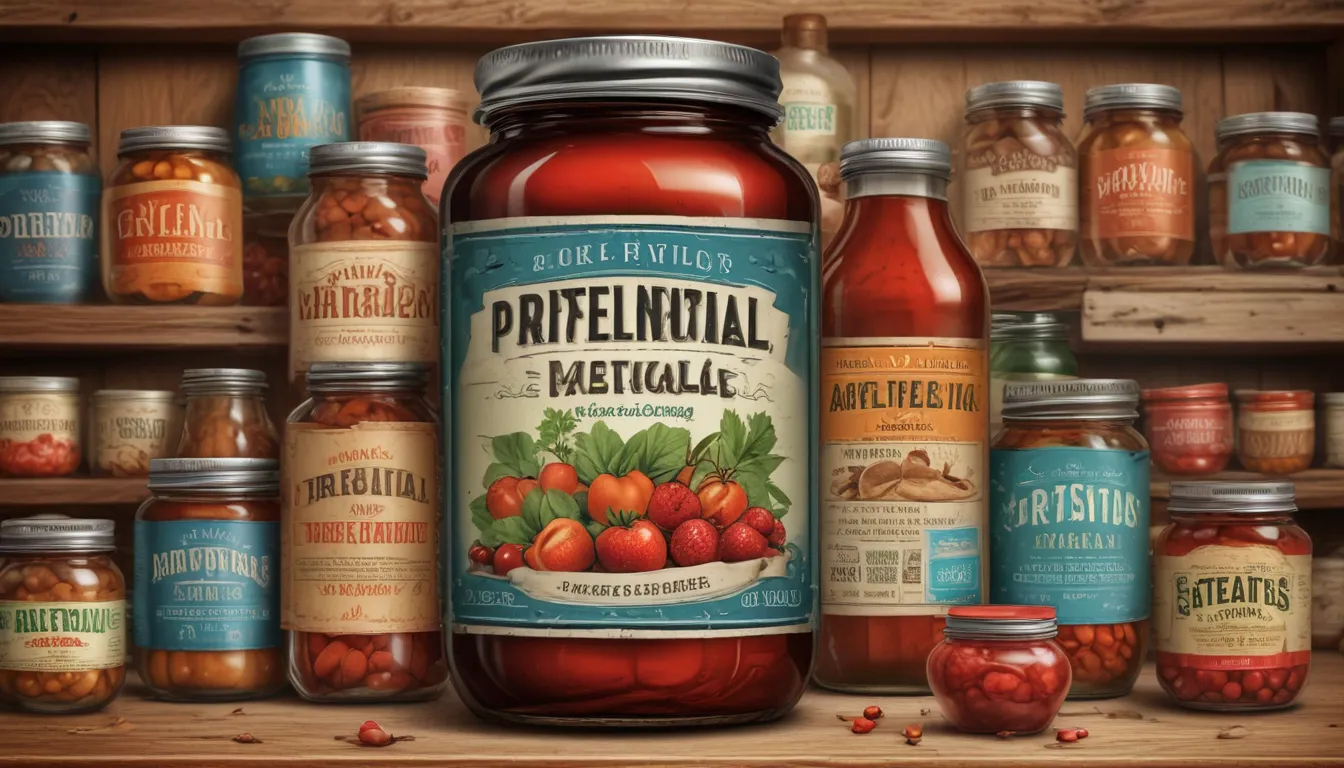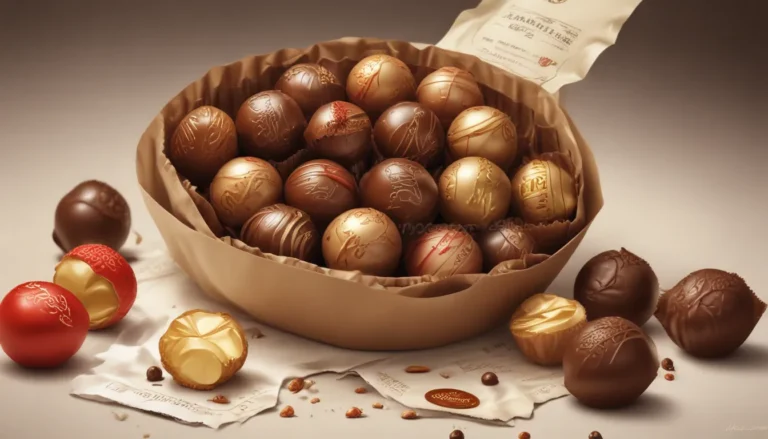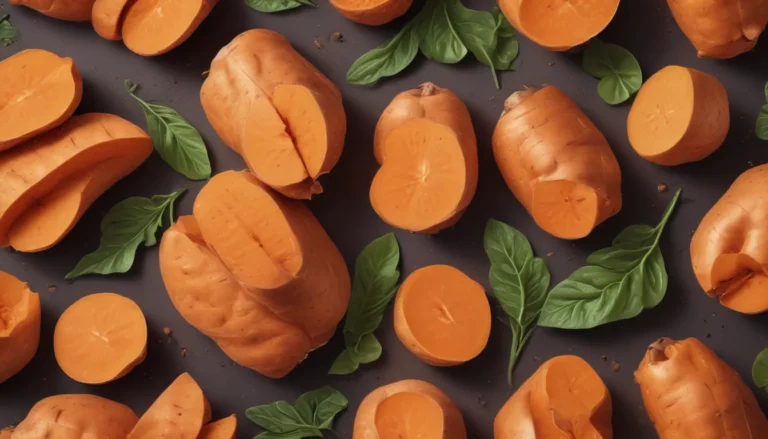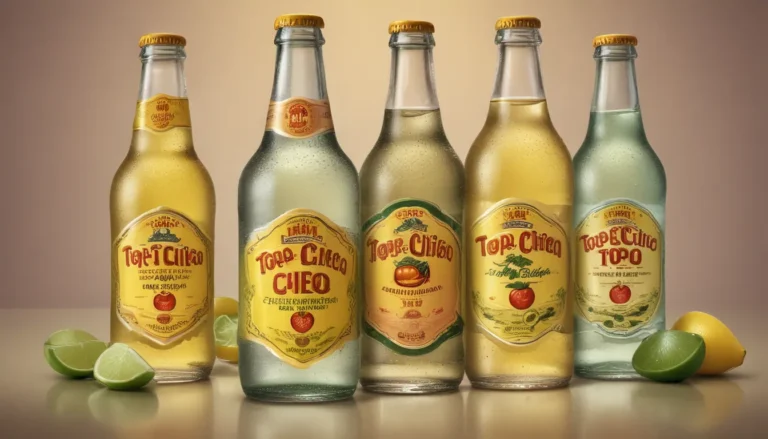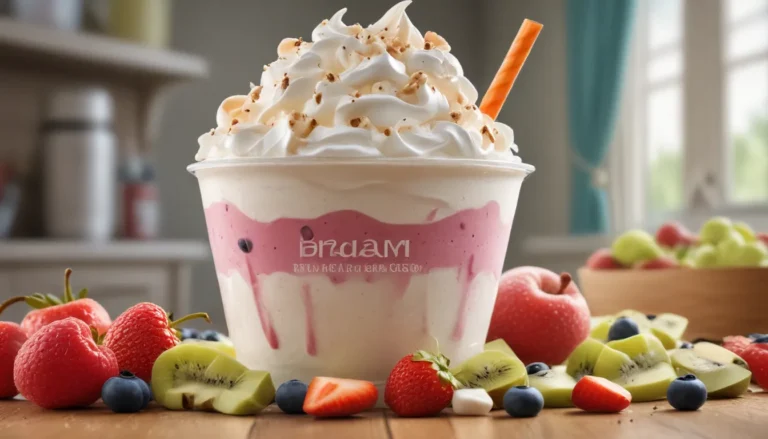The pictures in our articles might not always show exactly what the text is talking about. We use these images to make the article more interesting and eye-catching. They are there to add to the text, but not to replace it or show every detail.
Are you curious about the secrets behind the long shelf life of your favorite snacks? Artificial preservatives play a vital role in preserving food products, but there is much more to them than meets the eye. In this comprehensive guide, we will delve into 23 intriguing facts about artificial preservatives, shedding light on their functions, benefits, and the ongoing debates surrounding their use. Whether you are a health-conscious individual, a concerned consumer, or simply eager to expand your knowledge, these insights will provide you with a deeper understanding of the hidden elements that impact our daily diets.
Unveiling the World of Artificial Preservatives
Artificial preservatives are essential substances added to food to prolong its shelf life by preventing spoilage caused by bacteria, molds, fungi, or yeast. These additives also help maintain the texture, color, and flavor of products. While they offer convenience and reduce food waste, concerns about their potential health effects have sparked increased scrutiny.
- Sodium benzoate is a prevalent artificial preservative commonly found in acidic foods like salad dressings and carbonated drinks.
- Potassium sorbate is another widely used preservative that effectively inhibits the growth of molds and yeasts in foods such as cheese and baked goods.
Ensuring Food Safety Through Preservatives
The use of artificial preservatives is crucial in ensuring the safety and longevity of food products by inhibiting the growth of harmful microorganisms, thus helping prevent foodborne illnesses.
- Nitrites and nitrates are added to cured meats like bacon and hot dogs to prevent botulism, a potentially fatal illness caused by bacteria.
- Propionic acid, commonly found in baked goods, not only extends shelf life but also prevents mold growth, ensuring products remain safe for consumption for extended periods.
Balancing Health Concerns and Regulatory Standards
While artificial preservatives play a vital role in extending shelf life and maintaining food quality, health concerns have been raised regarding their long-term consumption.
- Excessive intake of sodium nitrite has been linked to the formation of nitrosamines, compounds associated with an increased risk of certain cancers.
- Regulatory bodies such as the FDA and EFSA have established strict limits on the levels of artificial preservatives permissible in food products in response to health concerns.
Embracing Natural Alternatives in Food Preservation
With an increasing focus on health-conscious consumer choices, there is a notable shift towards natural preservatives and cleaner labels in the food industry.
- Vitamin E (tocopherol), a natural antioxidant, is increasingly used to prevent oxidation in oils and fats, replacing synthetic options like BHT.
- Rosemary extract, renowned for its antioxidant properties, serves as a popular natural alternative that helps prolong the shelf life of various food products without the need for artificial chemicals.
Paving the Way for Future Food Preservation Innovations
Advancements in food technology are opening doors to new methods of preservation that could potentially reduce or eliminate the need for artificial preservatives.
- High-pressure processing (HPP) utilizes extreme pressure to inactivate pathogens and enzymes in food, extending shelf life without compromising nutritional value.
- Edible coatings, derived from natural substances like chitosan, create protective barriers around food, preventing spoilage and reducing reliance on traditional preservatives.
Empowering Consumers Through Awareness and Choice
As awareness of the potential health impacts of artificial preservatives grows, consumers are actively seeking out products with fewer synthetic additives.
- Labels such as "preservative-free" or "no artificial preservatives" are becoming more prevalent, reflecting a shift towards cleaner, more natural food products.
- Educated consumers are carefully scrutinizing labels, opting for products with recognizable ingredients, signaling a preference for minimally processed foods.
Global Perspectives on Preservative Use
Different regions worldwide are responding to concerns about artificial preservatives in distinct ways, influencing global food trends.
- In Europe, a stringent regulatory framework governs the use of food additives, including preservatives, resulting in tighter controls compared to other regions.
- In Asia, traditional preservation methods like fermentation are gaining traction as healthy and natural alternatives to synthetic preservatives.
- The global organic food market is witnessing rapid growth driven by consumer demand for products free from artificial additives, including preservatives.
Navigating the Ongoing Debate Surrounding Preservatives
Despite the benefits of artificial preservatives in prolonging food shelf life and ensuring safety, the debate over their health implications persists.
- Some experts argue that the risks associated with artificial preservatives are minimal when consumed within regulatory limits.
- Others advocate for a precautionary approach, recommending minimizing exposure to synthetic additives as a prudent health choice.
Exploring Innovations in Food Science and Preservation
Emerging technologies and discoveries in food science hold promise for developing safer, more effective preservation methods.
- Biopreservation utilizes natural microorganisms and their by-products to inhibit spoilage, gaining traction as an increasingly popular approach.
- Smart packaging that can regulate the atmosphere inside packaging or indicate product freshness offers an innovative way to extend shelf life without artificial preservatives.
- The development of natural preservative compounds from plants, such as polyphenols, provides a promising alternative to synthetic additives.
- Nanotechnology in food preservation explores creating barriers against microorganisms at the nanoscale, enhancing food safety.
- The food industry faces the challenge of finding a balance between safety, shelf life, and the demand for natural, minimally processed foods as consumer preferences evolve.
A Fresh Perspective on Preservatives and Consumer Choices
After exploring the intricate world of artificial preservatives, understanding their roles, benefits, and controversies, you are now equipped to make informed decisions about the foods you consume. Whether you opt for convenience-driven products with preservatives or choose fresh, preservative-free alternatives for health reasons, the power lies in your hands. Remember, balance is key in both diet and life. Next time you embark on a grocery shopping adventure, take a moment to read labels and contemplate the ingredients that fuel your body and mind. Your well-being will thank you for the extra attention.
Conclusion
Our commitment to delivering accurate and engaging content drives our mission to provide a valuable resource for exploring diverse insights and information. Each fact shared on our platform is contributed by real users like you, ensuring a wealth of diverse perspectives. We stand by our dedication to quality and authenticity as you embark on a journey of exploration and learning with us.
